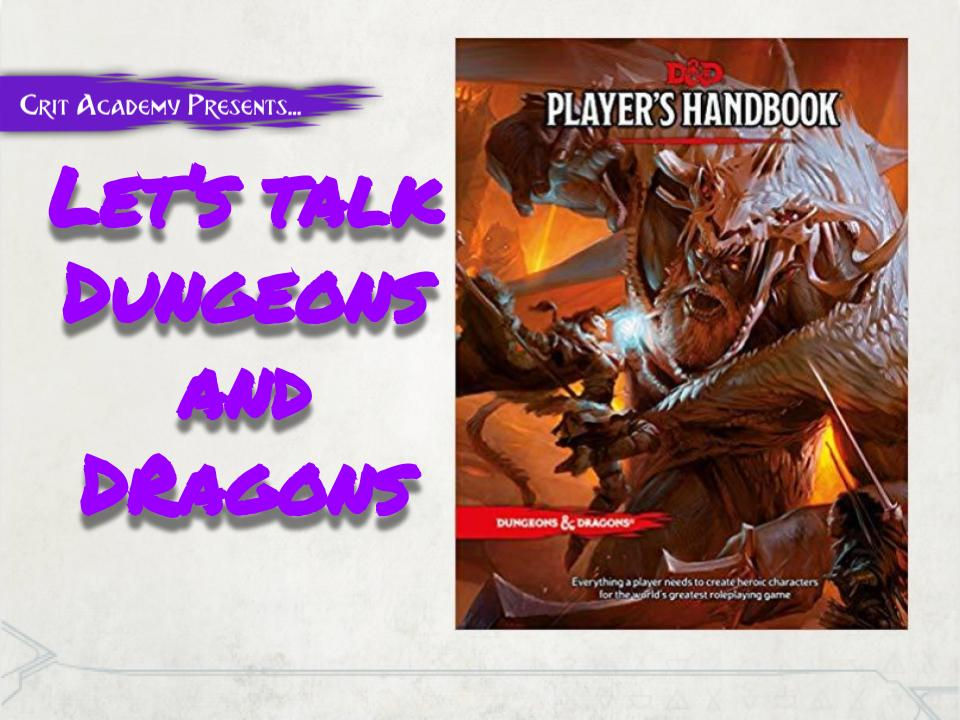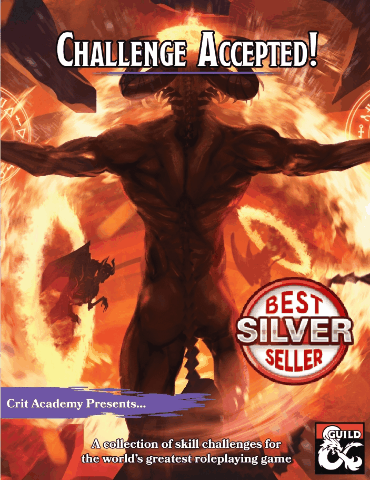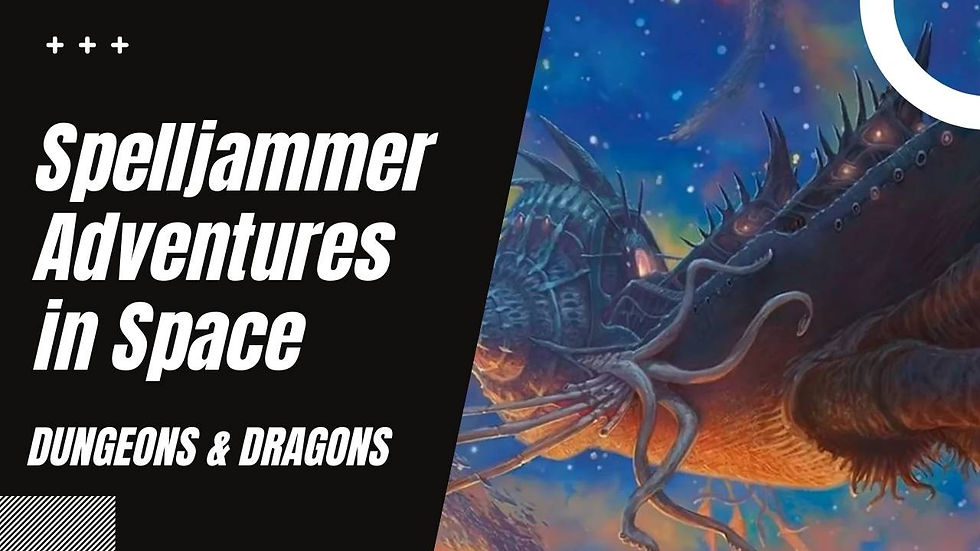Let's Talk Dungeons and Dragons
- Justin Handlin

- Jan 3, 2020
- 4 min read

The hosts of the Crit Academy Introduce themselves in their first ever episode and talk about their experiences with roleplaying and D&D and why they now play 5th Edition.
We discuss the tools and investment that it takes to get started and how to make sure your game gets a great start.
We start by breaking down what the stats that determine character capabilities and what they represent in game and how you can get the most out out of them. Especially how to really enjoy low stats.
We recommend getting started with WoTC's free Basic Rules found here.
We apologize for the change in the audio, we had a mic going bad right out of the box.
A great random generator called DonJon can be found here.
Unearthed Tips and Tricks Segment:
Character Concept:
Long Lived.
Age is a commonly overlooked part of character creation. Ancient characters may know much more about the world than younglings, but they see the world through an outdated lense.
This character is a ridiculously old, elf druid. He’s stopped counting, or forgotten, exactly
how old he is. Most folk know him as the ‘senile old man,’ but, over many centuries, he’s stored more knowledge than most could ever hope to possess.
Encounter Idea:
Wall Running Assassin
The players are tasked with stopping an assassin before he is able to kill his mark. However, as they locate the assassin and begin pursuit, the party realizes their quarry is craftier than they assumed; the assassin is able to run along walls and ceilings to escape!
Following the assassin will prove difficult (requiring Athletics checks or clever teamwork
to overcome obstacles and barriers on the way), but even when they engage in combat, fighting an opponent who is standing upside-down above them can throw them off balance! The players may take disadvantage on attack rolls due to the difficulty of attacking someone on the ceiling, or maybe the assassin has advantage due to being so familiar with his own ability.
It’s important to keep in mind that, in this scenario, the assassin’s goal is not to kill the
players, it’s to kill his mark. If he sees a way to escape, he’s going to do it. If he is able to kill his target, think about the repercussions: will the city guard believe that a group of mercenary adventurers fought a masked assassin that was walking along the ceiling?
Maybe. Maybe not.
Magic Item Idea:
The Boomerang Daggers is a set of daggers with curved blades. When thrown, Boomerang
Daggers will return to the hand of the owner at the end of the turn they are thrown.
Have you ever created a thrown-weapon master and been in the middle of combat
with nothing left to throw? Never again! The Boomerang Daggers are a set of daggers with
curved blades that, when thrown, come back to the thrower like a boomerang. You will be able to throw your daggers with impunity without worrying whether you’ll run out, and you can even use them in creative ways. You could throw a dagger with one hand, then stab
an opponent with another dagger before catching the first.
DM Tip:
Think of your favorite intense battles in popular fiction. The hero and villain lock swords, and
they taunt or plead with each other between sword blows. The villain begins monologuing as the battle moves from one phase to another.
The current Dungeons & Dragons ruleset doesn’t exactly allow for this type of situation
to happen smoothly in combat. So you might try implementing a special phase in battle- at
the end or start of every initiative round, the players (and NPCs) can speak freely amongst
themselves before starting the next round. The players can use this to discuss tactics, the villain can use this to challenge the players or ridicule them and their beliefs, or you can have
NPCs providing commentary on the events so far. Whatever you use it for, it’s a quick and easy way to make your battles more cinematic and memorable.
Player Tip: Don't Be a Dick!
Do Stuff!
As a DM, the worst feeling in the world is when you describe a scene and then look around the table only to hear crickets chirping because the players are sitting there, staring at you, waiting for someone else to do something.
When you’re a player, engaging with the game is your most important job. Remember that
your character has goals. When you enter a town, do you wait for the DM to describe every
noteworthy location before moving along with your quest, or do you immediately start looking for the nearest tavern? When inside the tavern, do you simply say, “I order a drink and find a table in the corner” so you can wait for someone or something to come to you, or do you seek out an NPC that your character would want to speak to or keep an eye on?
The DM will do their best to provide you with options, but remember that there are always
more. If you’re just waiting for the DM to list off a bunch of choices, then you’re putting all the work on the DM. Instead, offer suggestions off the bat. Take the initiative to search for clues or do things that your character would do; you’ll find that the game will go from being one-sided to being a collaborative story as a result.
Your character should always be doing something. Think about your past, goals, and
what your character wants to achieve both now and in the future. All of these should inform what your character is doing at any given moment.
We hope you enjoyed your experience here on Crit Academy, if you did, please consider sharing our show and leaving a review here on itunes.
Support Us:
Subscribe to our Blog and be entered to win phat lootz every week.
Visit our website at www.critacademy.com or become a patron donor and get additional phat loot!















Comments